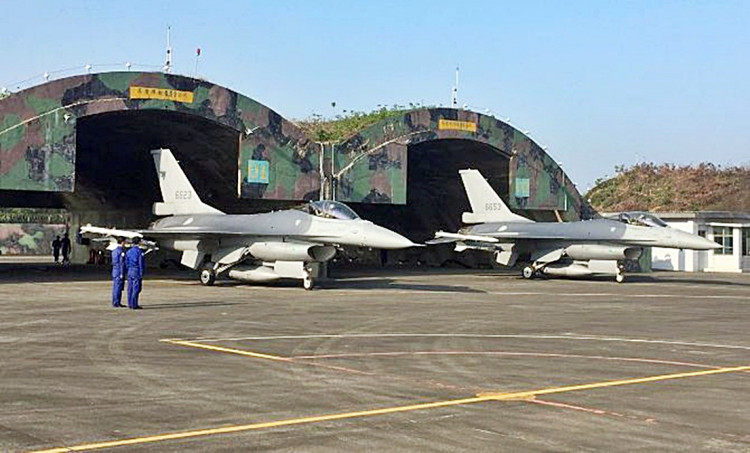China is threatening some form of retaliation against either Taiwan or the United States following Washington's decision to approve the sale of 66 Lockheed Martin F-16V Fighting Falcon jet fighters to the island nation.
China said the U.S. crossed a "red line" with the final approval of the sale, which the Trump administration only announced over the weekend but which it had approved in August 2019. The deal is worth $62 billion to Lockheed Martin and will cover a 10-year period.
The U.S. approval is dangerous because it steps on and even crosses China's red line on the Taiwan question, declared Ni Feng, director of the Institute of American Studies at the Chinese Academy of Social Sciences, which is run by China's State Council. Ni said the sale increases the risk of a confrontation with either the U.S. or Taiwan.
The Global Times tabloid, which is owned by the Communist Party of China, noted that while the F-16 sale was approved by the Trump administration in 2019, "its announcement at this particular time is believed to be yet another U.S. provocation and a step on the red line of the Taiwan question, which further risks confrontation."
China's Ministry of Foreign Affairs on Monday said the U.S. should make immediate amends for violating the red line by suspending the F-16V deal and any military contacts with Taiwan. It demanded the Trump administration respect the red line, which is based on the sanctity of the one-China principle.
Ministry spokesman Zhao Lijian said the Taiwan question concerns China's core interests, and he emphasized that China will firmly defend its sovereignty. China considers Taiwan a part of China, viewing it as a renegade province that will one day be brought under its control, by force if need be.
China has repeatedly opposed U.S. weapons sales to Taiwan as violations of the one-China principle. Zhao said the F-16V deal jeopardizes China-U.S. relations and the stability of the Taiwan Strait.
The F-16V (Viper) is the latest, upgraded model of the iconic and highly nimble jet fighter, which first flew with the U.S. Air Force in the late 1970s.
Taiwan's air force already operates versions of the F-16, and it ordered 90 more F-16Vs on August 15. The 66 F-16Vs will be made at Lockheed Martin factories in Greenville, South Carolina, and Fort Worth, Texas.
Main improvements to the F-16V have to do with its electronics. This version features an AN/APG-83 active electronically scanned array radar. It also carries a new mission computer and electronic warfare suite.






